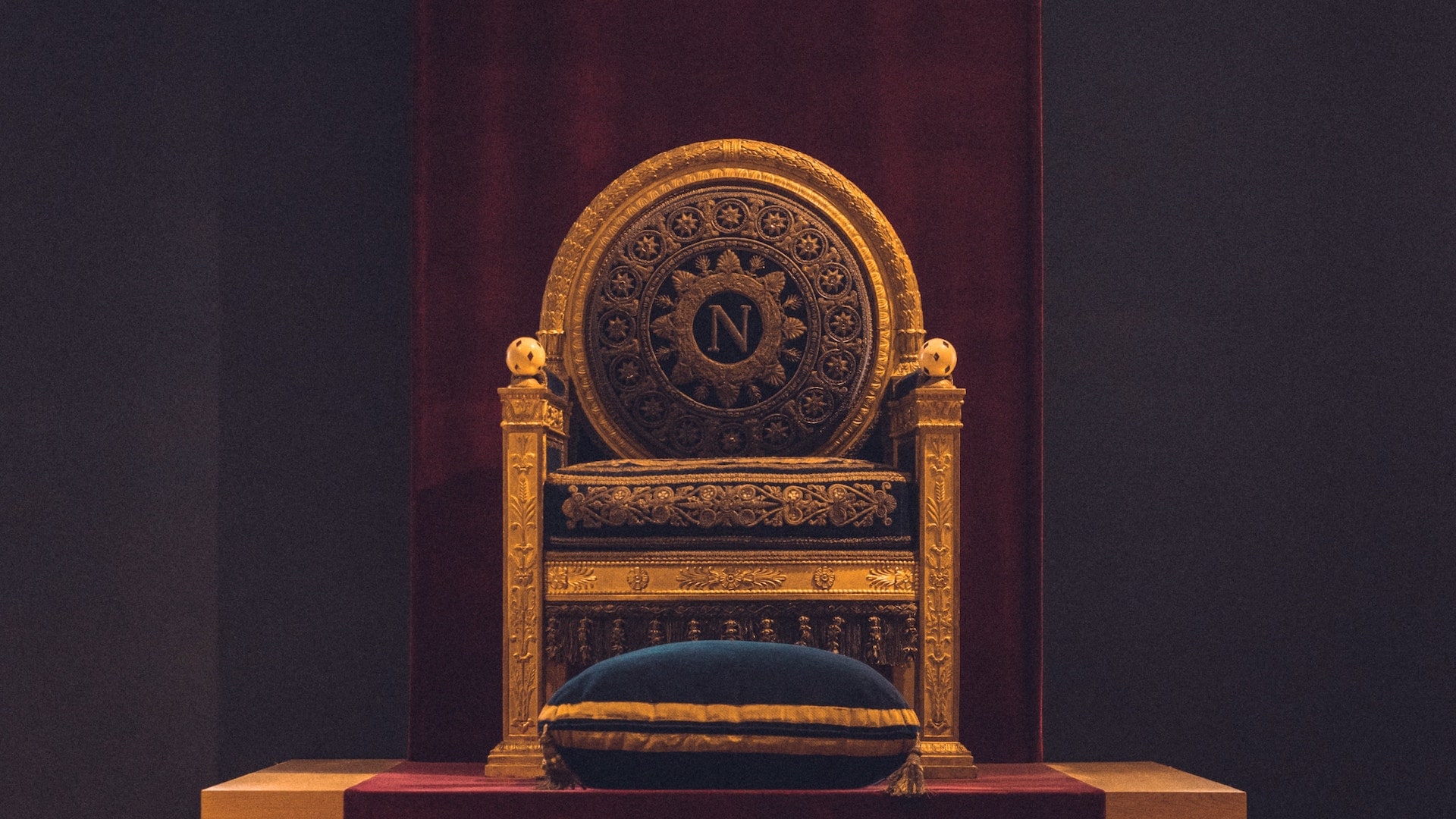My travels have led me through many castles in many kingdoms, my journey through many palaces in many places. I have seen the grandest edifices ever designed by the mind of men to display the value, the worth, the grandeur of their inhabitants. I have seen throne rooms devised to dazzle the eyes and overwhelm the senses. I have seen scepters and crowns carefully composed to symbolize the power, the authority, and the majesty of pontiffs and potentates alike.
In many of these castles and palaces I have paused to observe thrones—thrones overlaid with gold, thrones adorned with precious stones, thrones that are set on great platforms so the one seated upon them is in a place of prominence, a place of preeminence, a place that is elevated above all others. These thrones tower high above to symbolize the unique power, the unique might, the unique worth of the ones seated upon them. The steps to the thrones of monarchs invariably lead up, not down.
This is, after all, a world oriented toward the strong, toward the wealthy, toward the powerful. It is a world that rewards those who strain to get ahead, those who are willing to tread others underfoot, those who elevate themselves at the cost of friends and foe alike. It is a world where men battle for power, where men vie for money, where men will stop at nothing until they have not just enough to satisfy their needs, but to have excess, to have abundance, to have more than anyone else.
But beyond and within this visible world, is an invisible one that runs on very different principles. Beyond the swaying and tottering kingdoms of men is the fixed and constant kingdom of God, and it turns everything on its head. For in this kingdom the way to the heights passes through the valleys, the way to riches passes through utter bankruptcy. The way to reach the highest place is to seek the lowest, the way to attain wealth is to seek poverty, the way to be counted much is to esteem oneself as little. It is in this kingdom that the last are counted ahead of the first, that the weak are counted mightier than the strong, that those who weep are counted greater than those who have only ever laughed.
Where men grasp and strive for power, God values those who seek after humility. Where men gladly subjugate others in order to get ahead, God values those who are meek and mild in temper. Where men hunger and thirst for riches and prominence, God promises satisfaction only to those who hunger and thirst after righteousness. Where men demand justice for everyone but themselves and satisfaction for every transgression but their own, God loves the merciful and promises they are the ones who shall receive mercy. It is those who are persecuted who shall stand in the end and who shall see the fullness of God’s eternal kingdom.
If there are scepters in God’s invisible kingdom, they are not grasped in clenched fists but joyfully surrendered to the true king. If there are crowns in God’s invisible kingdom, they are worn only so they can be removed to be thrown at his feet. If there are thrones in God’s invisible kingdom, they are adorned not with gold or jewels but with words of gentleness and deeds of kindness. And the steps to these thrones do not lead up to a place of preeminence that those who sit upon them can be seen and glorified, but they lead down—down to the place of humility, the place of service, the place where the King himself has led.










